- 01869 226760
- gail@bicesterwills.co.uk
- Mon - Fri: 8AM - 4PM
Table of Contents
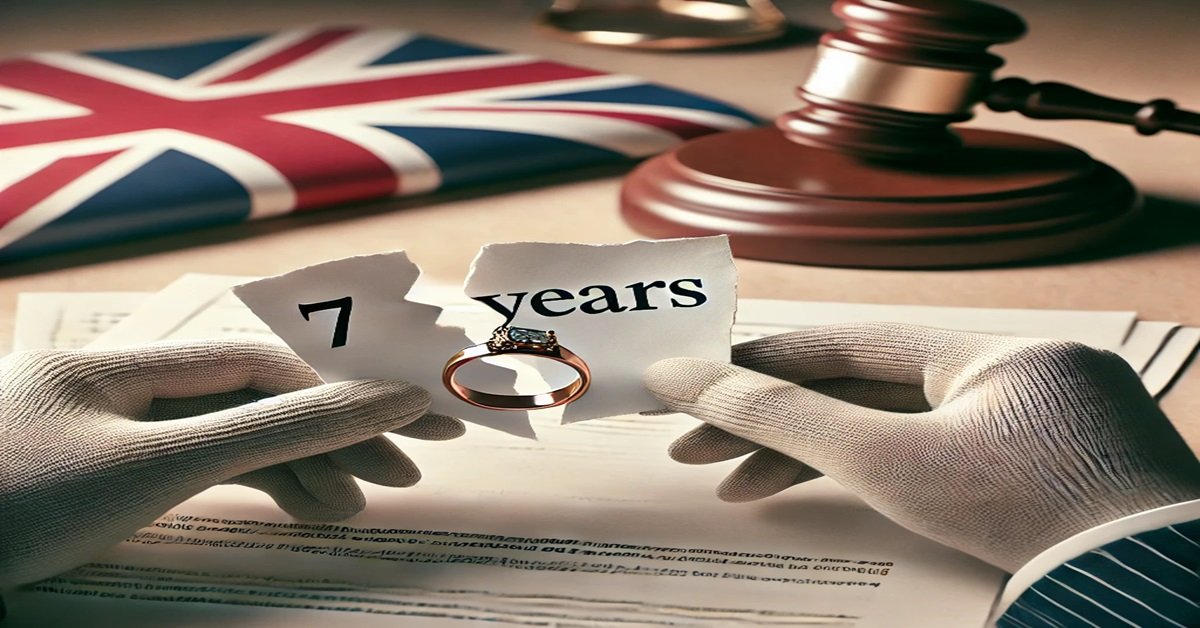
- admin
- Blog
A common myth is that UK couples can be divorced after a long separation, especially after seven years. Many believe that, after a long time apart, divorce happens without legal action. This is not at all accurate, though.
Law has no provision for an automatic divorce after 7 years UK, regardless of how long you’ve been separated. Divorce laws have evolved over time. In fact, a formal legal process is always required to officially dissolve a marriage.
The No-Fault Divorce law, which took effect in April 2022, made the process simpler. But, it hasn’t removed the need for legal action. This law aims to simplify divorces by removing the need to blame the other party. But, automatic divorces still don’t exist.
Is Automatic Divorce After 7 Years a Myth?
Yes, the idea of an automatic divorce after seven years is a myth. Many believe a long separation ends a marriage. This is not true under UK law. Divorce in England and Wales requires a formal application. This is true, no matter how long a couple has been separated.
After years apart, you cannot be divorced without a legal process. To end a marriage, you must apply to the court. This involves completing some paperwork and getting a final order. This is the only legal way to end a marriage.
No-Fault Divorce, introduced in April 2022, allows couples to separate without blame. This has made the process easier. However, you must still follow the legal divorce process to end your marriage in England and Wales, even with this reform. The myth of automatic divorce, therefore, has no legal standing under UK family law.
Understanding Divorce Laws in the UK
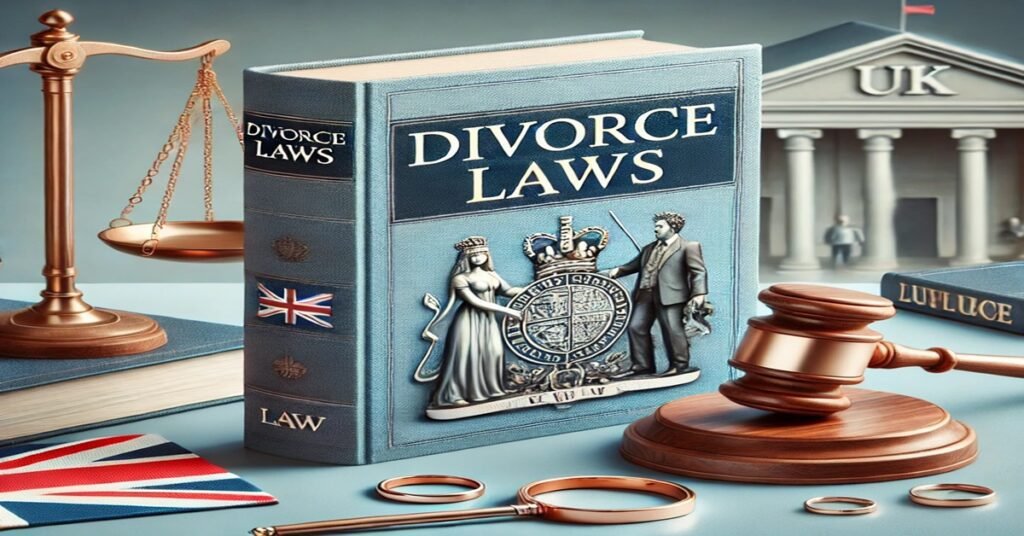
No-Fault Divorce
The No-Fault Divorce system, introduced in April 2022, changed UK divorce law. This system lets couples end their marriage without blaming each other. Before, one spouse had to give a reason, like adultery. No-Fault Divorce eliminates the need for such claims.
This change is designed to make the process less stressful and contentious. By removing blame, both parties can focus on a peaceful split. This reduces conflict. The No-Fault system aims for a smoother, less stressful process. This is key when kids or money are at stake. However, while the process is easier, it still requires formal legal steps to be completed.
How to Apply for Divorce
Applying for a divorce in the UK involves several key steps:
- Submitting the Application: First, submit a divorce application. You can do this jointly with your spouse or individually. This can be done online through the government’s service or by post.
- Conditional Order: After processing your application, the court will check for grounds for divorce. If there are, you will receive a conditional order. This is a document that confirms the court sees no reason why you cannot divorce.
- Final Order: You can apply for the final order six weeks after getting the conditional order. Once this is granted, your marriage is officially ended, and both parties are legally divorced.
These steps are required for all divorces in England and Wales, regardless of the circumstances.
How Long Do You Need to Be Separated Before Divorce?
Separation periods are often misunderstood when it comes to divorce. While being separated for two or five years can be used as grounds for divorce, it does not mean divorce happens automatically. You still need to follow the formal process through the family court.
In fact, whether you’ve been separated for several months or many years, the same legal steps apply. You must apply for a divorce and follow the legal steps, no matter how long you’ve been apart. Separation can support your case for divorce, but it does not replace the need for proper divorce proceedings.
Does Separation Length Impact Your Divorce?
Impact of Separation on Divorce
While a lengthy separation can simplify some aspects of the divorce process, it doesn’t automatically end the marriage. In the UK, it doesn’t matter how long you’ve been apart—two years, five years, or even longer. You must still apply for a divorce through the courts.
Separation can be grounds for divorce, especially if you’ve been apart for a long time. For example, a two-year separation by mutual consent, or a five-year one without it, can make divorce easier. However, this does not mean that divorce is automatic after any length of time.
Even if you and your spouse have lived separate lives for years, you must still use the proper legal channels to end the marriage. This includes submitting a divorce application and following the steps laid out by family law. In the end, the legal process is needed to finalise your divorce, no matter how long you’ve been separated.
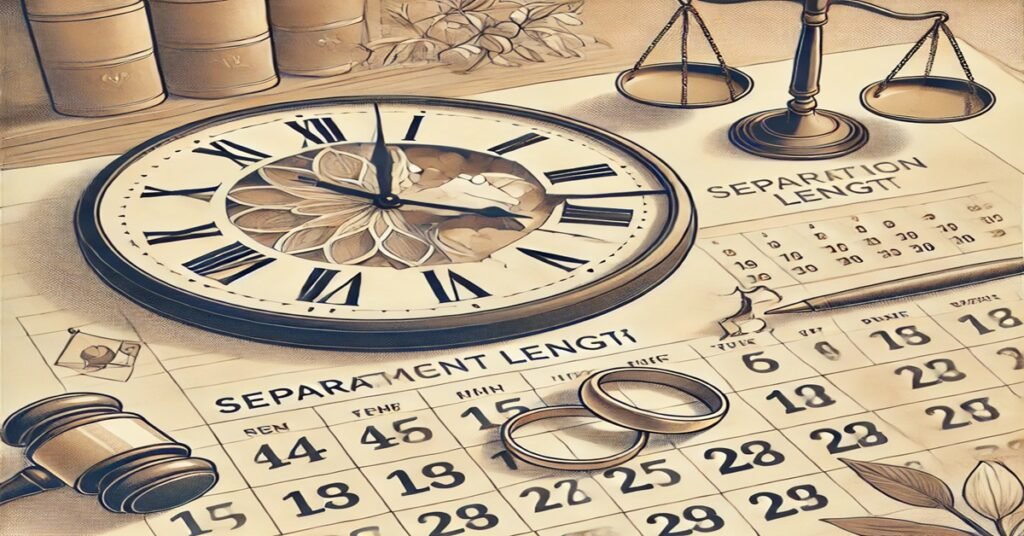
Financial Settlements and Child Custody
Sorting Out Financial Settlements
When it comes to divorce, sorting out financial matters is a crucial part of the process, regardless of how long you’ve been separated. Financial settlements cover key assets like property, savings, and pensions. Both parties must agree on how these are divided, or the family court will make the decision.
Note that, even if you’ve been separated for years, your ex-spouse can still make a financial claim against you. Until a court approves a settlement, you are still financially tied. This means that, after years apart, either party can ask for a share of the other’s assets. This includes any income or property acquired after the separation.
To avoid future claims, it’s best to sign a binding financial agreement with your divorce. This can be done through negotiation, mediation, or, if necessary, by court order.
Arrangements for Children
When a couple with children divorces, child custody and parental responsibilities must be carefully addressed. The family court’s primary concern is always the welfare of the children. Custody decisions are based on the child’s best interest. They determine where the children will live and how much time they’ll spend with each parent.

Most parents can agree on arrangements. If they can’t, the court will intervene. Factors like the child’s safety, emotional well-being, and stability are carefully considered.
The aim is to ensure that the children maintain healthy relationships with both parents wherever possible. Courts favour shared parental responsibility. They prefer arrangements that let children spend time with both parents, if it serves the child’s best interests.
The Divorce Process – Step by Step
How to Start Divorce Proceedings
Beginning the divorce process can feel daunting, but it can be broken down into simple steps:
- Apply for a Divorce: The process starts by submitting an application online or via post. You can apply jointly with your spouse or on your own.
- Acknowledgement of Service: After you submit your application, your spouse will get a copy. They will be asked to confirm receipt.
- Conditional Order: If the court agrees that the legal requirements for divorce are met, you will receive a conditional order. This confirms the court’s approval for the divorce to proceed.
- Final Order: Six weeks after the conditional order, you can apply for the final order. This document officially ends the marriage.
Always consult a family solicitor. They will help the process run smoothly. They can also advise on complex matters like finances or custody.
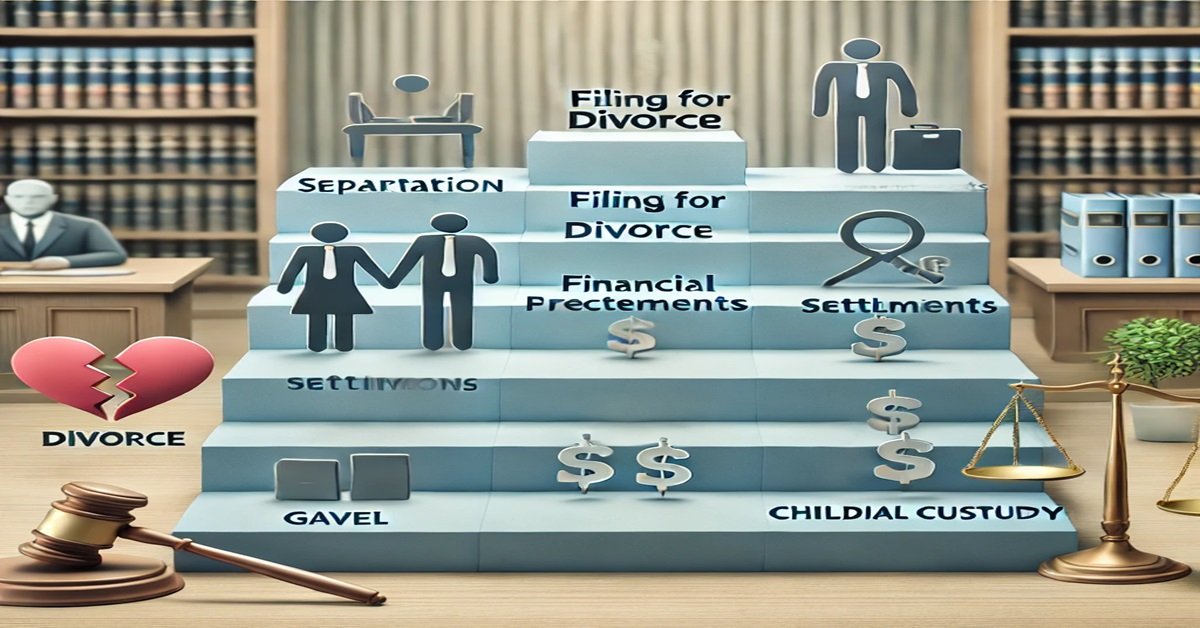
Do You Need a Solicitor for Divorce After 7 Years?
Even if you’ve been separated for many years, it’s wise to seek legal advice when filing for divorce. A solicitor can help ensure fair financial settlements. They can also address all child-related issues, like custody and support.
A solicitor will likely make the legal process run more smoothly. This will reduce stress and protect your rights and interests. This is vital for complex matters like property, pensions, or long-term separation.
How to Apply for a Divorce
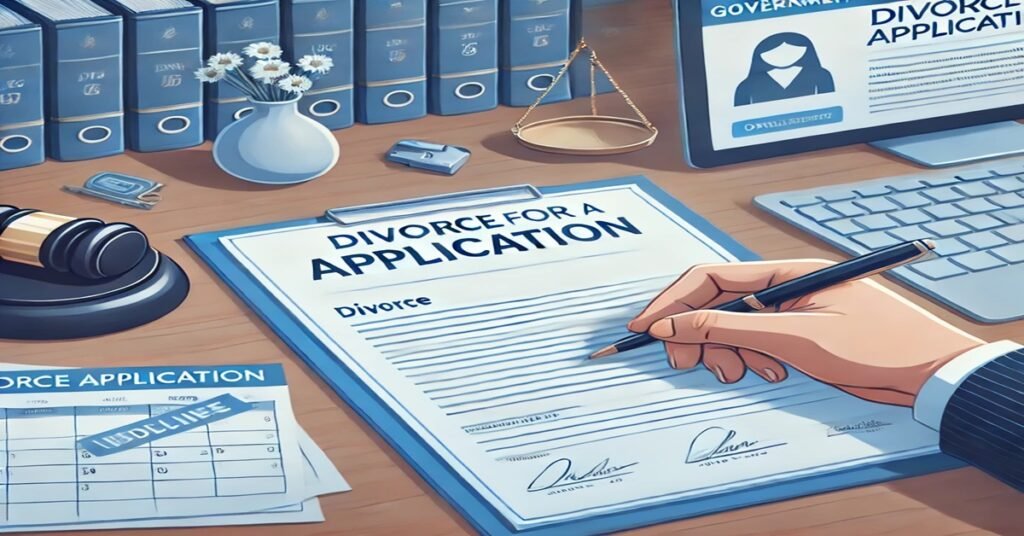
Applying for a divorce in the UK is a straightforward process, but it helps to be prepared. First, submit a divorce application, online or by post, via the UK government’s service. You’ll need to provide essential documents, such as your marriage certificate and personal details about both you and your spouse.
Clearly outline your reasons for the divorce. If possible, agree with your spouse on finances and child arrangements beforehand. This can help speed up the process.
For help navigating the application process or dealing with more complex issues, it’s a good idea to seek legal advice. Our legal services will support you. We will ensure your application is done right and efficiently. We will guide you through the family court’s steps.
Final thoughts
In summary, there is no such thing as an automatic divorce in the UK, even after many years of separation. No matter how long you’ve been apart, you must follow the legal process to end your marriage. This includes applying for a divorce, obtaining a conditional order, and receiving the final order.
Divorce can raise complex issues, especially over money and child custody. So, it’s best to seek legal advice. A solicitor can help ensure your divorce is handled efficiently. They will protect your rights and secure fair arrangements for finances and children.
If you’re facing a divorce, especially after a long separation, contact us for expert guidance through every step of the process.
Frequently Asked Questions
Does being separated for 7 years automatically end my marriage?
No, being separated for any length of time, including 7 years, does not automatically end your marriage. You still need to apply for a divorce through the proper legal channels. A formal application must be made to the court, and only after the legal process is complete will your marriage officially end.
If my partner refuses, can I still obtain a divorce?
It is still possible to file for divorce even if your partner refuses. After 5 years of separation, you can apply for a divorce without your spouse’s consent. The court will consider the length of separation, and you can proceed without their agreement.
Will long separation affect my financial settlement?
Even after a long separation, the courts will consider finances in a divorce settlement. A long separation does not remove the need to fairly divide assets, such as property, savings, and pensions. A financial settlement must still be legally agreed upon.
Latest Post
-
How Much Does a Solicitor Charge for Power of Attorney?
October 18, 2024 LPA -
Valid Reasons for Child Name Change UK
September 9, 2024 Blog -
Automatic Divorce After 7 Years UK – Myth or Reality?
September 7, 2024 Blog -
What You Should Never Put in Your Will UK
August 19, 2024 Wills






